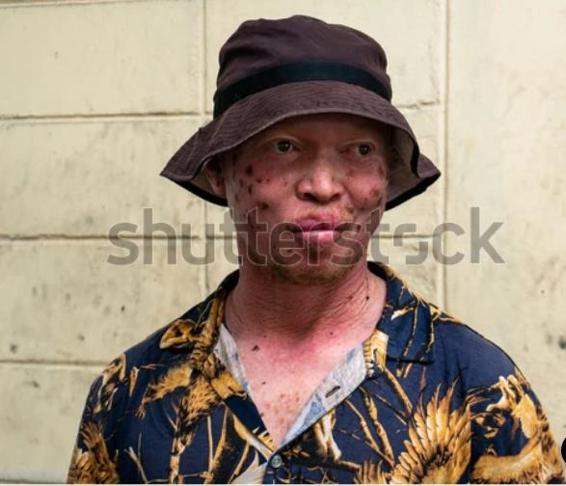ALBINOS IN AFRICA
Within the complex history of Africa, the plight of albinos has been marked by instances of persecution and discrimination. This section reveals insight into the verifiable encounters persevered by people with albinism, analyzing the social, social, and political elements that have added to such separation.
Moreover, we investigate the significant effect these shameful acts have had on the existences of pale skinned people and their networks across different African nations.
5.1. Discussion of Historical Instances of Persecution and Discrimination Against Albinos
In Tanzania, there have been distressing cases of targeted attacks and killings of albinos fueled by superstitions and misguided beliefs surrounding their body parts. Similar instances have been documented in countries like Malawi, where albinos have been victims of ritualistic practices. These historical instances expose the extreme forms of persecution and discrimination that albinos have faced in some African societies.
In Tanzania, for instance there have been documented cases of brutal attacks and killings of albinos driven by the belief in the supernatural powers of their body parts. These body parts are sometimes sought after for use in rituals or traditional medicine.
In Malawi, pale skinned people have been focused on for their body parts, accepted to have mystical properties, prompting an ascent in kidnappings, mutilations, and murders.
27

Benaiah Orajereyor Agejivwie
By Gideon Ikigai on Shutterstock
5.2. Examination of the Social, Cultural, and Political Factors Contributing to Such Discrimination: Deep-rooted social and cultural beliefs surrounding albinism have perpetuated discrimination. Superstitious beliefs linking albinos to witchcraft, spiritual curses, or magical powers have fueled stigmatization and marginalization. Political variables, like absence of satisfactory lawful assurances and authorization, have additionally added to the weakness of pale skinned people in a few African nations.
Deeply ingrained social and cultural beliefs perpetuate discrimination against albinos. Superstitions linking albinos to witchcraft, curses, or magical abilities fuel fear and misunderstanding. In certain networks, albinos are viewed as outsiders or even as a danger to the local area's prosperity.
Politically, the lack of comprehensive legislation and enforcement to protect the rights of albinos has allowed discrimination to persist in certain African countries.
28
THE HISTORY OF ALBINISM IN AFRICA: MYTHS, LEGENDS, AND SUPERSTITIONS
5.3. Impact on the Lives of Albinos and their Communities:
The results of verifiable abuse and victimization pale skinned people have been sweeping. Albinos have faced barriers to education, employment opportunities, healthcare, and social inclusion. These systemic challenges have perpetuated cycles of poverty and limited their ability to fully participate in society.
Besides, the mental and close to home cost for people with albinism and their networks is significant, bringing about sensations of dread, disengagement, and injury.
By confronting the historical instances of persecution and discrimination against albinos, we aim to shed light on the systemic issues that have perpetuated these injustices. Figuring out the social, social, and political variables that have added to such separation is fundamental for pushing change and advancing inclusivity.
The separation looked by pale skinned people significantly affects their lives. Albinos often face limited educational opportunities due to discrimination and lack of accommodations. Discrimination also affects their employment prospects, leading to high rates of unemployment and economic marginalization. Access to healthcare is a challenge, with limited awareness of albinism-related health issues and the need for specialized care. The psychological toll is significant, as albinos grapple with fear, low self-esteem, and social isolation.
Furthermore, discrimination against albinos affects their communities at large. Families of albinos often face social exclusion and may become targets of discrimination themselves.
The overall social fabric suffers as the potential contributions and talents of albinos are overlooked, hindering societal progress and 29
Benaiah Orajereyor Agejivwie inclusivity.
These specific details highlight the severity and complexity of the issue of historical persecution and discrimination against albinos in Africa.
By addressing these challenges head-on, promoting education, advocating for legal protections, and fostering social acceptance, we can strive towards a more equitable and inclusive society for individuals with albinism in Africa and beyond.
By enhancing the voices of pale skinned people and their networks, we endeavor to encourage mindfulness, challenge destructive generalizations, and make ready for a more impartial and tolerating future in Africa.
30
6 SHIFTING PERSPECTIVES AND CONTEMPORARY




